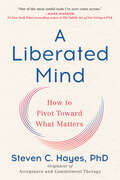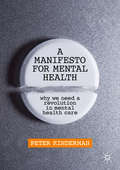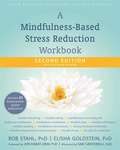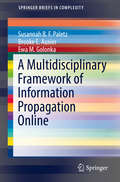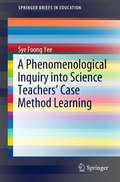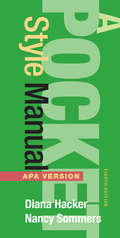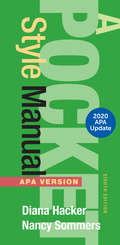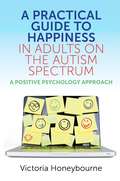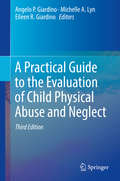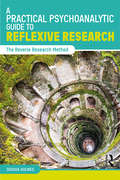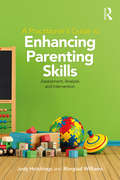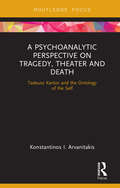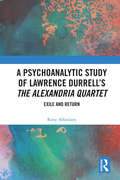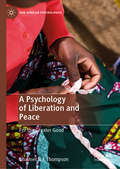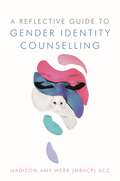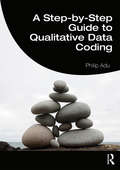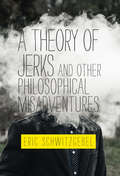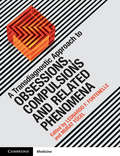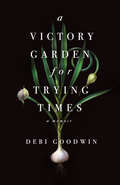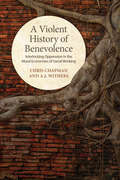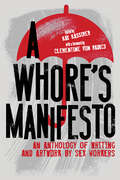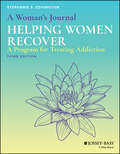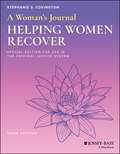- Table View
- List View
A Liberated Mind: How to Pivot Toward What Matters
by Steven C. Hayes"In all my years studying personal growth, Acceptance and Commitment Therapy is one of the most useful tools I've ever come across, and in this book, Dr. Hayes describes it with more depth and clarity than ever before."-Mark Manson, #1 New York Times best-selling author of The Subtle Art of Not Giving a F*ckLife is not a problem to be solved. ACT shows how we can live full and meaningful lives by embracing our vulnerability and turning toward what hurts.In this landmark book, the originator and pioneering researcher into Acceptance and Commitment Therapy (ACT) lays out the psychological flexibility skills that make it one of the most powerful approaches research has yet to offer. These skills have been shown to help even where other approaches have failed. Science shows that they are useful in virtually every area--mental health (anxiety, depression, substance abuse, eating disorders, PTSD); physical health (chronic pain, dealing with diabetes, facing cancer); social processes (relationship issues, prejudice, stigma, domestic violence); and performance (sports, business, diet, exercise).How does psychological flexibility help? We struggle because the problem-solving mind tells us to run from what causes us fear and hurt. But we hurt where we care. If we run from a sense of vulnerability, we must also run from what we care about. By learning how to liberate ourselves, we can live with meaning and purpose, along with our pain when there is pain.Although that is a simple idea, it resists our instincts and programming. The flexibility skills counter those ingrained tendencies. They include noticing our thoughts with curiosity, opening to our emotions, attending to what is in the present, learning the art of perspective taking, discovering our deepest values, and building habits based around what we deeply want.Beginning with the epiphany Steven Hayes had during a panic attack, this book is a powerful narrative of scientific discovery filled with moving stories as well as advice for how we can put flexibility skills to work immediately. Hayes shows how allowing ourselves to feel fully and think freely moves us toward commitment to what truly matters to us. Finally, we can live lives that reflect the qualities we choose.
A Manifesto for Mental Health: Why We Need a Revolution in Mental Health Care
by Peter KindermanA Manifesto for Mental Health presents a radically new and distinctive outlook that critically examines the dominant ‘disease-model’ of mental health care. Incorporating the latest findings from both biological neuroscience and research into the social determinants of psychological problems, Peter Kinderman offers a contemporary, biopsychosocial, alternative. He warns that the way we care for people with mental health problems is creating a hidden human rights emergency and he proposes a new vision for the future of health organisations across the globe. The book highlights persuasive evidence that our mental health and wellbeing depend largely on the society in which we live, on the things happen to us, and on how we learn to make sense of and respond to those events. Kinderman proposes a rejection of invalid diagnostic labels, practical help rather than medication, and a recognition that distress is usually an understandable human response to life's challenges. Offering a serious critique of establishment thinking, A Manifesto for Mental Health provides a well-crafted demonstration of how, with scientific rigour and empathy, a revolution in mental health care is not only highly desirable, it is also entirely achievable.
A Mindfulness-Based Stress Reduction Workbook
by Elisha Goldstein Bob StahlStress and pain are nearly unavoidable in our daily lives; they are part of the human condition. This stress can often leave us feeling irritable, tense, overwhelmed, and burned-out. The key to maintaining balance is responding to stress not with frustration and self-criticism, but with mindful, nonjudgmental awareness of our bodies and minds. Impossible? Actually, it's easier than it seems. <p><p> In just weeks, you can learn mindfulness-based stress reduction (MBSR), a clinically proven program developed by Jon Kabat-Zinn, author of Full Catastrophe Living. MBSR is effective in alleviating stress, anxiety, panic, depression, chronic pain, and a wide range of medical conditions. Taught in classes and clinics worldwide, this powerful approach shows you how to focus on the present moment and permanently change the way you handle stress. <p><p> As you work through this Workbook, you'll learn how to replace stress-promoting habits with mindful ones-a skill that will last a lifetime. This groundbreaking, proven-effective program will help you relieve the symptoms of stress and identify its causes. This fully revised and updated second edition includes new audio downloads, new meditations, and extensive chapter revisions to help you manage stress and start living a healthier, happier life.
A Multidisciplinary Framework of Information Propagation Online (SpringerBriefs in Complexity)
by Susannah B. Paletz Brooke E. Auxier Ewa M. GolonkaThis book presents a broad, multidisciplinary review of the factors that have been shown to or might influence sharing information on social media, regardless of its veracity. Drawing on literature from psychology, sociology, political science, communication, and information studies, the book provides a high-level framework of information sharing. The framework progresses through different categories. Information is first acquired or viewed from different sources; then, the target sharer has emotional and cognitive reactions to that information. The next categories involve motivations to share and the actual ability and perceptions of that ability to share. The greater context, such as culture, language, and social networks, also influences information sharing. Finally, the book distinguishes between genuine and non-genuine (inauthentic) actors. This text will appeal to students and especially to technical researchers looking for a social science perspective.
A Phenomenological Inquiry into Science Teachers’ Case Method Learning (SpringerBriefs in Education)
by Sye Foong YeeThis book illustrates a practical application of the Case Method as a teaching technique in teacher education, and examines how learning takes place in a teacher professional development activity. It also describes teachers’ lived experience of the activity based on Clark Moustakas' 1994 guidelines for organizing and presenting a phenomenological study.
A Pocket Style Manual
by Diana Hacker Nancy SommersBecoming a college writer means becoming a college researcher, and it can be a challenge for students to keep all of the guidelines and best practices straight for each class. Enter A Pocket Style Manual, APA Version. The eighth edition—with its emphasis on step-by-step how-to instruction that helps students apply writing, research , and citation advice in practical, transferable ways—is a powerful companion for writing in all disciplines. What’s more, it covers all aspects of writing in APA style, including over 100 APA documentation models and 11 sample student papers in diverse genres, from a literature review to a laboratory report to a professional memo. With Pocket’s new research help, tested and trusted grammar and style advice, and digital tools that make practice, tracking, and grading simple, you’ve got the most powerful pocket guide for college writing and research.
A Pocket Style Manual, APA Version
by Diana Hacker Nancy SommersBecoming a college writer means becoming a college researcher, and it can be a challenge for students to keep all of the guidelines and best practices straight for each class. Enter A Pocket Style Manual, APA Version. The eighth edition—with its emphasis on step-by-step how-to instruction that helps students apply writing, research , and citation advice in practical, transferable ways—is a powerful companion for writing in all disciplines. What’s more, it covers all aspects of writing in APA style, including over 100 APA documentation models and 11 sample student papers in diverse genres, from a literature review to a laboratory report to a professional memo. With Pocket’s new research help, tested and trusted grammar and style advice, and digital tools that make practice, tracking, and grading simple, you’ve got the most powerful pocket guide for college writing and research.
A Practical Guide to Happiness in Adults on the Autism Spectrum: A Positive Psychology Approach
by Victoria HoneybourneClear and engaging, this book offers a refreshing positive psychology approach to mental health and autism. Moving away from neurotypical views of happiness, it sets out simple techniques to help adults on the spectrum improve their mental health. Packed with helpful exercises for individuals and groups, it covers topics such as recognising character strengths, dealing with negative self-talk, building communication skills and self-awareness, and forming coping strategies for the workplace. Autistic individuals and professionals who work with them will find flexible and practical solutions to recurring negative thoughts, helping clear the path to a successful and happy future. A must-read for anyone on the spectrum or those who support them.
A Practical Guide to the Evaluation of Child Physical Abuse and Neglect
by Angelo P. Giardino Eileen R. Giardino Michelle A. LynThe impact of child maltreatment on victims, families, and society—from immediate medical care and legal services to long-term mental health care and law enforcement—cannot be understated. And it remains a severe problem in spite of increasing public awareness and stricter laws. To keep up with growing body of professionals staying informed on this subject, the third edition of A Practical Guide to the Evaluation of Child Physical Abuse and Neglect assists the reader in recognizing abuse/neglect (exclusive of sexual abuse) in children and youth, and determining its extent. Illustrated with clinical photographs, the Guide details systematic evaluation procedures, explains the tasks of an evaluation team, and expands and updates the knowledge base in these and other major areas:Specific injuries, including burns, bruises, fractures, and head and abdominal injuriesMalnourishment and other forms of neglectMedical child abuse (previously known as Munchausen Syndrome by Proxy)Maltreatment of children with special health care needsDomestic partner violencePrevention strategies, psychosocial assessment, collaborations with law enforcement and the courts, and moreThe new edition of A Practical Guide to the Evaluation of Child Physical Abuse and Neglect offers expert information useful to practitioners across professional domains: public health professionals in maternal and child health and school settings; physicians and nurses; clinical social workers, child psychologists, and school psychologists; and attorneys and law enforcement personnel.
A Practical Psychoanalytic Guide to Reflexive Research: The Reverie Research Method
by Joshua HolmesA Practical Psychoanalytic Guide to Reflexive Research offers an accessible guide to enriched qualitative research. In this novel approach, the researcher’s feelings and empathy in relation to participants take centre stage, leading to fresh, exciting and usable research findings. The psychoanalytic concept of reverie refers to those startling and unexpected images, feelings and daydreams which can come to mind as we interact with other people in the world. Qualitative research involves interacting with human subjects, and the book shows how uncanny or troubling reverie experiences can be turned to good use by being linked back to deeper research questions and hypotheses.Joshua Holmes critically explores the role of self-reflection (reflexivity) in psychoanalysis and qualitative research. Practical guidance is offered while planning research; conducting research interviews; analysing interview data; teaching methods which foster the capacity for reverie; and in relation to research groups. Examples are given throughout, including the author’s own missteps along the way, in which he shares the importance of learning from experience. The book breathes life into research processes offering much-needed clinical relevance. The method moves away from one-size-fits all, formulaic research procedures and brings tenor, colour and texture into the research process, to create vivid, real-life meaningful findings.A Practical Psychoanalytic Guide to Reflexive Research will be essential reading for undergraduate and postgraduate qualitative researchers wishing to enhance their reflexive practice, while psychotherapists and psychoanalysts will find a genuinely psychoanalytic research method, where their clinical skills become vital capacities rather than an awkward hindrance.
A Practitioner's Guide to Enhancing Parenting Skills: Assessment, Analysis and Intervention
by Judy Hutchings Margiad WilliamsA Practitioner’s Guide to Enhancing Parenting Skills: Assessment, Analysis and Intervention offers a detailed and stepwise approach to problem behaviour analysis and management, based on the successful and evidence-based Enhancing Parenting Skills Programme (EPaS). This unique programme, based on 40 years of Professor Hutchings’ clinical work, draws on social learning theory (SLT) principles designed to support families of young children with behavioural challenges. In this book, Hutchings and Williams combine clear practical guidance with case examples and useful checklists to deliver SLT-based interventions tailored to the unique needs of individual families. The case analysis identifies the assets and skills in the home situation and the functions of problem behaviours before creating a set of achievable goals. The latter part of the manual includes examples of intervention strategies to address several common problems, including toileting, eating and night-time problems. This book is an invaluable tool for all practitioners working in Early Years including CAMHS primary care staff, social workers, clinical psychologists, health visitors and school nurses.
A Psicologia das Relações Humanas: Uma Série Introdutória
by Connor WhiteleyDas diferentes razões para atrair comportamentos pró-sociais, desvendamos as relações humanas. A evolução desempenha um papel na escolha do parceiro? Promover um bom comportamento social é eficaz? Qual é o Efeito Espectador? Essas são apenas algumas das questões interessantes e importantes que exploraremos neste livro, à medida que exploramos a psicologia das relações humanas. Então, junte-se a mim, pois juntos exploraremos o mundo fascinante da psicologia das relações humanas neste livro com um conversa intrigante que claramente dissolve e avalia criticamente conceitos e teorias para que todos possam desfrutar as maravilhas da psicologia ... e não sentir dor de cabeça no final!
A Psychoanalytic Perspective on Tragedy, Theater and Death: Tadeusz Kantor and the Ontology of the Self
by Konstantinos I. ArvanitakisA Psychoanalytic Perspective on Tragedy, Theater and Death shines a spotlight on what theater, and especially tragedy, tells us about our ontological selves, by exploring both Euripides’ Bacchae and the work of Tadeusz Kantor. Focusing on the theatrical tradition of the West, the book examines Euripides’ Bacchae, a tragedy about the nature of tragedy, suggesting that the tragic can be defined as an ontological duality rooted in the early experience of the infant’s separation from mother, with whom s/he had, until then, formed a fused Unit. The traumatic rupture of this primal Unit is inscribed in the unconscious as death. The book then considers the defining binary structure of the theatrical setting – (spectator/spectated or fantasy/reality) – before arguing that in staging our ontological dividedness, theater shows its relation to death to be organic. The book concludes by examining in detail the principal works of Polish theater director Tadeusz Kantor, whose search for theater’s identity was, essentially, a search for human identity. Erudite and far-reaching, A Psychoanalytic Perspective on Tragedy, Theater and Death will interest psychoanalysts as well as students, scholars and researchers across the dramatic arts wishing to draw on psychoanalytic ideas.
A Psychoanalytic Study of Lawrence Durrell’s The Alexandria Quartet: Exile and Return
by Rony AlfandaryA Psychoanalytic Study of Lawrence Durrell’s The Alexandria Quartet: Exile and Return focuses on the dialogue created by literature and psychoanalysis in an individual’s quest to explore existential issues, such as a sense of belonging to a homeland and a recurring sense of the Uncanny (das unheimliche). Rony Alfandary explores Durrell’s attempt to recreate a sense of belonging to a homeland, which perhaps never existed but can be retraced and reinvented through writing. This book studies some issues present in Durrell’s work: the connection between biographical and fictional elements in the study of literature the influence of early Freudian theoretical themes upon the writer later influences including post-modern and hermeneutic theories The life and work of Lawrence Durrell can serve as a prototype of a man’s quest for meaning, in a world caught in turmoil in the period between and during WW2. The author’s psychoanalytic exploration of the work and its relevance to human experience today, shows how the themes Durrell dealt with remain relevant. Alfandary highlights the ways in which his usage of several author narrative styles exemplifies the divergent and often contradictory nature of "Truth", emerging rather as multi-layered, multi-voiced and often torn sense of human subjectivity. A Psychoanalytic Study of Lawrence Durrell’s The Alexandria Quartet: Exile and Return demonstrates Durrell’s strong influence by psychoanalytic thought and will appeal to both psychoanalytic and literary scholars.
A Psychology of Liberation and Peace: For the Greater Good (Pan-African Psychologies)
by Chalmer E. ThompsonThis book addresses the need to radically transform societies plagued by racism. It places prominence on persistent racialized violence in the lives of Black Americans as influential in how Black people in the U.S. and abroad perceive themselves as Black in juxtaposition to their perceptions of White people and other People of Color. An absence of understanding of the often-masked role of violence in the lives of Black people increases the likelihood of reproducing it. The author offers a reformulation of racial identity theory to examine the construction of Manichaeism in people and societies, and how meaningful engagement that confronts the violence is vital to psychological development, though this engagement also is not without dire risks.
A Quiet Kind of Thunder
by Sara BarnardPerfect for fans of Morgan Matson and Jandy Nelson. A girl who can&’t speak and a boy who can&’t hear go on a journey of self-discovery and find support with each other in this gripping, emotionally resonant novel for &“readers who enjoyed John Green&’s Turtles All the Way Down&” (Booklist) from bestselling author Sara Barnard. Steffi doesn&’t talk, but she has so much to say. Rhys can&’t hear, but he can listen. Steffi has been a selective mute for most of her life. The condition&’s name has always felt ironic to her, because she certainly does not &“select&” not to speak. In fact, she would give anything to be able to speak as easily and often as everyone around her can. She suffers from crippling anxiety, and uncontrollably, in most situations simply can&’t open her mouth to get out the words. Steffi&’s been silent for so long that she feels completely invisible. But Rhys, the new boy at school, sees her. He&’s deaf, and her knowledge of basic sign language means that she&’s assigned to help him acclimate. To Rhys, it doesn&’t matter that Steffi doesn&’t talk. As they find ways to communicate, Steffi discovers that she does have a voice, and that she&’s falling in love with the one person who makes her feel brave enough to use it. But as she starts to overcome a lifelong challenge, she&’ll soon confront questions about the nature of her own identity and the very essence of what it is to know another person.
A Reflective Guide to Gender Identity Counselling
by Madison-Amy WebbCounselling professionals are increasingly seeking training for working with gender variant clients. Madison-Amy Webb invites them to consider a simple truth: everyone has a gender identity, whether or not they've given it much thought. By reflecting on their own gender identity through the exercises provided, counsellors can relate to clients in new and productive ways, gaining a more nuanced understanding of the issues faced by their clients and of their own identity.Incisive yet accessible, this unique guide shines a light on how the popular conception of gender identity came into being by looking at the social and historical influences at play. This context is then brought to life with a rich variety of case studies and excerpts from the author's own diary. Reflective exercises such as 'The Dressing Up Box' and 'Personal Meaning' will help readers develop a deeper understanding of their own gender identity, while clinical techniques offer new ways to connect with gender variant clients effectively. Essential reading for any counselling professional working with gender variant clients.
A Step-by-Step Guide to Qualitative Data Coding
by Philip AduA Step-by-Step Guide to Qualitative Data Coding is a comprehensive qualitative data analysis guide. It is designed to help readers to systematically analyze qualitative data in a transparent and consistent manner, thus promoting the credibility of their findings. The book examines the art of coding data, categorizing codes, and synthesizing categories and themes. Using real data for demonstrations, it provides step-by-step instructions and illustrations for analyzing qualitative data. Some of the demonstrations include conducting manual coding using Microsoft Word and how to use qualitative data analysis software such as Dedoose, NVivo and QDA Miner Lite to analyze data. It also contains creative ways of presenting qualitative findings and provides practical examples. After reading this book, readers will be able to: Analyze qualitative data and present their findings Select an appropriate qualitative analysis tool Decide on the right qualitative coding and categorization strategies for their analysis Develop relationships among categories/themes Choose a suitable format for the presentation of the findings It is a great resource for qualitative research instructors and undergraduate and graduate students who want to gain skills in analyzing qualitative data or who plan to conduct a qualitative study. It is also useful for researchers and practitioners in the social and health sciences fields.
A Theory of Jerks and Other Philosophical Misadventures (The\mit Press Ser.)
by Eric SchwitzgebelA collection of quirky, entertaining, and reader-friendly short pieces on philosophical topics that range from a theory of jerks to the ethics of ethicists.Have you ever wondered about why some people are jerks? Asked whether your driverless car should kill you so that others may live? Found a robot adorable? Considered the ethics of professional ethicists? Reflected on the philosophy of hair? In this engaging, entertaining, and enlightening book, Eric Schwitzgebel turns a philosopher's eye on these and other burning questions. In a series of quirky and accessible short pieces that cover a mind-boggling variety of philosophical topics, Schwitzgebel offers incisive takes on matters both small (the consciousness of garden snails) and large (time, space, and causation). A common theme might be the ragged edge of the human intellect, where moral or philosophical reflection begins to turn against itself, lost among doubts and improbable conclusions. The history of philosophy is humbling when we see how badly wrong previous thinkers have been, despite their intellectual skills and confidence. (See, for example, “Kant on Killing Bastards, Masturbation, Organ Donation, Homosexuality, Tyrants, Wives, and Servants.”) Some of the texts resist thematic categorization—thoughts on the philosophical implications of dreidels, the diminishing offensiveness of the most profane profanity, and fatherly optimism—but are no less interesting. Schwitzgebel has selected these pieces from the more than one thousand that have appeared since 2006 in various publications and on his popular blog, The Splintered Mind, revising and updating them for this book. Philosophy has never been this much fun.
A Transdiagnostic Approach to Obsessions, Compulsions and Related Phenomena
by Leonardo F. Fontenelle Murat YücelObsessions, compulsions and related phenomena occur across a wide spectrum of neuropsychiatric disorders. The boundaries between obsessive-compulsive disorder (OCD) and other psychopathological phenomena, such as delusions, impulsions and habits, remain unclear. Further, the subclinical symptoms of OCD are highly prevalent, causing significant impact but yet are poorly understood. To help address these limitations, recent debates have highlighted the importance of a transdiagnostic approach to psychiatry. This book integrates what is currently known about obsessionality, compulsivity and the boundaries of OCD and related disorders and unveils areas that are worthy of future research. Using a transdiagnostic framework, it provides a comprehensive review of the key issues to understanding the diagnosis and evaluation of OCD and related disorders, as well as describing how the clinician can treat OCD and its manifold presentations. Edited by leading specialists in the field, this book offers a global perspective to the diagnosis and treatment of these disorders.
A Victory Garden for Trying Times
by Debi Goodwin“A compelling and intimate reflection on love and grief and ordinary things that comfort and sustain us.” — Alison Smith, award-winning journalist Ever since her childhood on a Niagara farm, Debi has dug in the dirt to find resilience. But when her husband, Peter, was diagnosed with cancer in November, it was too late in the season to seek solace in her garden. With idle hands and a fearful mind, she sought something to sustain her through the months ahead. She soon came across Victory Gardens — the vegetable gardens cultivated during the world wars that sustained so many. During an anxious winter, she researched, drew plans, and ordered seeds. In spring, with Peter in remission, her garden thrived and life got back on track. But when Peter's cancer returned like a killing frost, the garden was a reminder that everything must come to an end. A Victory Garden for Trying Times is a personal journey of love, loss, and healing through the natural cycles of the earth.
A Violent History of Benevolence: Interlocking Oppression in the Moral Economies of Social Working (G - Reference, Information and Interdisciplinary Subjects)
by Chris Chapman A.J. WithersA Violent History of Benevolence traces how normative histories of liberalism, progress, and social work enact and obscure systemic violences. Chris Chapman and A.J. Withers explore how normative social work history is structured in such a way that contemporary social workers can know many details about social work’s violences, without ever imagining that they may also be complicit in these violences. Framings of social work history actively create present-day political and ethical irresponsibility, even among those who imagine themselves to be anti-oppressive, liberal, or radical. The authors document many histories usually left out of social work discourse, including communities of Black social workers (who, among other things, never removed children from their homes involuntarily), the role of early social workers in advancing eugenics and mass confinement, and the resonant emergence of colonial education, psychiatry, and the penitentiary in the same decade. Ultimately, A Violent History of Benevolence aims to invite contemporary social workers and others to reflect on the complex nature of contemporary social work, and specifically on the present-day structural violences that social work enacts in the name of benevolence.
A Whore's Manifesto: An Anthology of Writing and Artwork by Sex Workers
by Kay KassirerSex work was once thought to be anathema to women's liberation. Now, to some, we represent the tenacity of women's struggles under patriarchy and capitalism—that is, at least, the white, straight, cis, able-bodied sex workers who don't engage in actual sex with clients. These are the workers who get the glossy media profiles and get touted as feminist icons. But the red umbrella is wide and covers so many: escorts, sugar babies, strippers, session wrestlers, cam performers, fetish models, DIY queer porn stars, and the full range of gender, race, and ability. Our work and our identities are as vast and variable as the spectrum of sexuality itself. We do the work. In the streets, in the clubs, in hotel rooms, and in play party dungeons. We make dreams come true so we can afford a place to sleep. We do business in a marketplace that politicians and police are constantly burning down for our "own safety and dignity." We have high heels and higher anxiety. This isn't a collection of sob stories of heartbroken whores. This is a testament of life at ground zero of sexual discourse, the songs of canaries in the coal mines of sex, gender, class, race, and disability. We may dance on the table, but we still demand our seat at it. Sex workers of the world unite. This is A Whore's Manifesto.
A Woman's Journal: Helping Women Recover, Special Edition For Use In The Criminal Justice System
by Stephanie S. CovingtonThe latest, fully-revised and updated edition of classic and best-selling work in the field Since it was first published in 1999, Helping Women Recover has set the standard for best practice in the field of women's treatment. Helping Women Recover is a manualized treatment intervention based on Dr. Covington's Women's Integrated Treatment (WIT) model-offering a program developed to meet the unique needs of women addicted to alcohol, other drugs, and those with co-occurring disorders. Included in SAMHSA's National Registry of Evidence-based Programs and Practices, The Helping Women Recover program offers counselors, mental health professionals, and program administrators the tools they need to implement a gender-responsive, trauma-informed treatment program in group settings or with individual clients. Now in its third edition, this binder set including both a facilitator's guide and a hands on participant's journal, has been updated with new material on opioid addictions, how to become trauma-informed and gender-responsive, LGBTQ issues, and more. The detailed chapter for the facilitator on how to use the program, updated references, and further reading suggestions help practitioners effectively implement the program in daily practice. A vital tool for all mental health and addiction treatment professionals, Helping Women Recover: Draws from the most up-to-date theory and practical applications in the fields of addiction and trauma Covers the historical background and fundamental principles of gender-responsive services Provides guidance for facilitating an effective woman's treatment program Offers real-world insights on the role of the facilitator Includes an appendix of additional recovery resources such as The Sixteen Steps for Discovery & Empowerment and Women for Sobriety New Life Program Acceptance Statements Helping Women Recover is essential for mental health and addiction treatment professionals including counselors, therapists, social workers, psychologists, and psychiatrists who work with women in hospitals, addiction treatment programs, community mental health centers, and individual practices.
A Woman's Journal: Helping Women Recover, Special Edition for Use in the Criminal Justice System
by Stephanie S. CovingtonThe latest, fully-revised and updated edition of classic and best-selling work in the field Since it was first published in 1999, Helping Women Recover has set the standard for best practice in the field of women's treatment. Helping Women Recover is a manualized treatment intervention based on Dr. Covington's Women's Integrated Treatment (WIT) model—offering a program developed to meet the unique needs of women addicted to alcohol, other drugs, and those with co-occurring disorders. Included in SAMHSA's National Registry of Evidence-based Programs and Practices, The Helping Women Recover program offers counselors, mental health professionals, and program administrators the tools they need to implement a gender-responsive, trauma-informed treatment program in group settings or with individual women in criminal justice settings. Now in its third edition, this binder set including both a facilitator's guide and a hands on participant's journal, has been updated with new material on opioid addictions, how to become trauma-informed and gender-responsive, LGBTQ issues, and more. Updated references, further reading suggestions, and a chapter for facilitators which includes the challenges of working in the criminal justice system help practitioners to effectively implement the program in daily practice. A vital tool for all mental health and addiction treatment professionals, Helping Women Recover: Draws from the most up-to-date theory and practical applications in the fields of addiction and trauma Covers the historical background and fundamental principles of gender-responsive services Provides guidance for facilitating an effective woman's treatment program Offers real-world insights on the role of the facilitator Includes an appendix of additional recovery resources such as The Sixteen Steps for Discovery & Empowerment and Women for Sobriety New Life Program Acceptance Statements Helping Women Recover is essential for mental health and addiction treatment professionals including counselors, therapists, social workers, psychologists, and psychiatrists who work with women in HWR is essential for anyone providing services to women in criminal justice settings.
